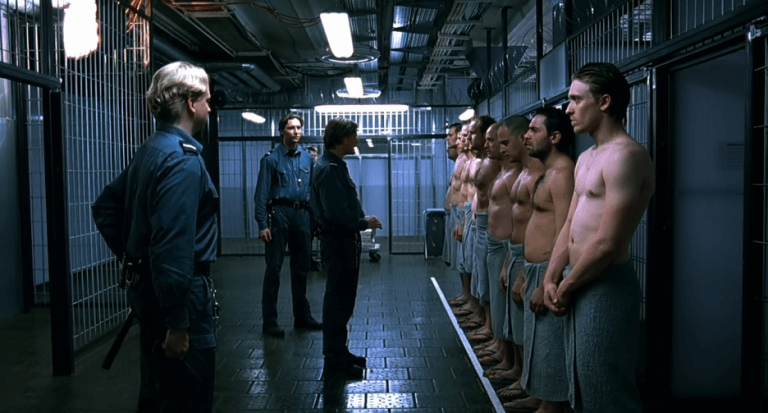If there’s one thing history has taught us, it’s that power is attractive and captivating, but it also has a dark side: it’s necessarily corrosive. They don’t have an autocratic system of government and prefer to separate their powers to avoid the damage that can engender the concentration of power in one hand.
One of the most difficult tasks facing educators, whether parents, teachers or professionals, is to teach the difference between hierarchy, leadership and authority, which is difficult because even the adult, in his educational work, often flirts dangerously with the limits of dictatorship.
- In fact.
- If we could give a name to the system that governs our own homes.
- That name would hardly be “democracy.
- “.
Imagine a family nucleus made up of a father who works outside the home, a mother in charge of household chores, a 12-year-old son and a 7-year-old daughter, at first glance the organization chart would be simple: parents at the highest level of the scale, followed by their children, the elderly have more rights and responsibilities.
The first difficulty we face is the distribution of power on the cusp. In general, while one party is responsible for providing financial support to the family, the other is responsible for managing logistics and child and home care; the two complement each other by performing different tasks.
Everything seems to be going well until one of the parties analyzes its contribution and quantifies the importance of each other’s work, therefore small fissures begin to appear in the justice of power.
If one party feels that their contribution is more important, based, for example, on the investment of time and effort or on the family needs that their work provides financially, an idea of imbalance will arise in which one intends to offer more than the other and therefore has the right to demand more power in the family.
This is the common case of a hardworking parent who uses financial power to create a family dictatorship, leaving his wife at a lower level already at the mercy of the “head of household” decisions.
In the case of siblings, discrepancies also often appear. While one of the parties thinks that because he is older he has power over his sister, he considers himself “subordinate” only to the parents, leading to continued confrontations.
In 1971, an experiment was conducted at Stanford University that left a mark on the study of power-based personal relationships.
The experiment has been to demonstrate how quickly inmates assume the role of inmates, setting aside their dignity and their own identity.
To do this, a time chain was created in the attics of the university, where 12 students would play the role of prisoners and another 12 would be jailers.
It was the response of the students who assumed the role of jailers, which then brought to light this study, as they did not hesitate to assume a role not as guardians, but as persecutors and torturers who intimidated, punished and humiliated.
On the second day of the experiment, how?They were treated provoked by a riot, this was harshly appeased by the students who played the role of jailers, the most surprising thing was that they had not received any indication of how to handle the prison, they only took out of their interior what they thought. they had to do.
The Stanford Prison experiment was suspended on the sixth day by its creator, psychologist Philip Zimbardo, under pressure from an outside observer who tested and warned against the violation of the most basic moral and ethical values.
This was not the first time an experiment had provoked the worst of human nature.
In 1963, psychologist Stanley Milgram carried out what became known as the Milgram Experiment at Yale University, which sought to measure the power that authority wields over an individual, in this case, the experiment forced the studied participants to apply increasingly intense electric shocks to other individuals. .
Again, the results were surprising, with 62% coming to apply the discharge at full power, and only a few, as in the Stanford experiment, were able to prioritize their own human values at the expense of the commands received.
In the film Death and Maiden (Roman Polanski, 1994), a man confesses, from the top of a cliff, that he raped several women while being captivated by a dictatorial regime:
“At first it was fine. I was strong I fought valiantly. Nobody fought like me. Was I the last one to fall, the last one to try? The others encouraged me: “Come on, doctor, you won’t refuse free fresh meat!?I couldn’t think straight anymore. Inside, did you feel like you were starting to like it?
In this terrible scene, the character played by Ben Kingsley confesses how the dark side of power consumed him, devouring his more human side and taking him where he never thought he could get there.
In the 8 mm feature film (Joel Schumacher, 1999), a researcher is hired to discover the origin of a film to be recorded and explain why it was in the safe of a recently deceased old man. In one scene, the protagonist (Nicolas Cage) asks one of the video’s managers:
Q: I’m trying to figure it out!
A: Because I could. What other reason were you looking for?
All of this could raise doubts about the origin of human nature. Do we respect the law for fear of legal consequences?Would we respect our ethical values if we had full power over those around us?
Experiments reveal that power takes us by the hand, inexorably, to the darker side of human beings.

